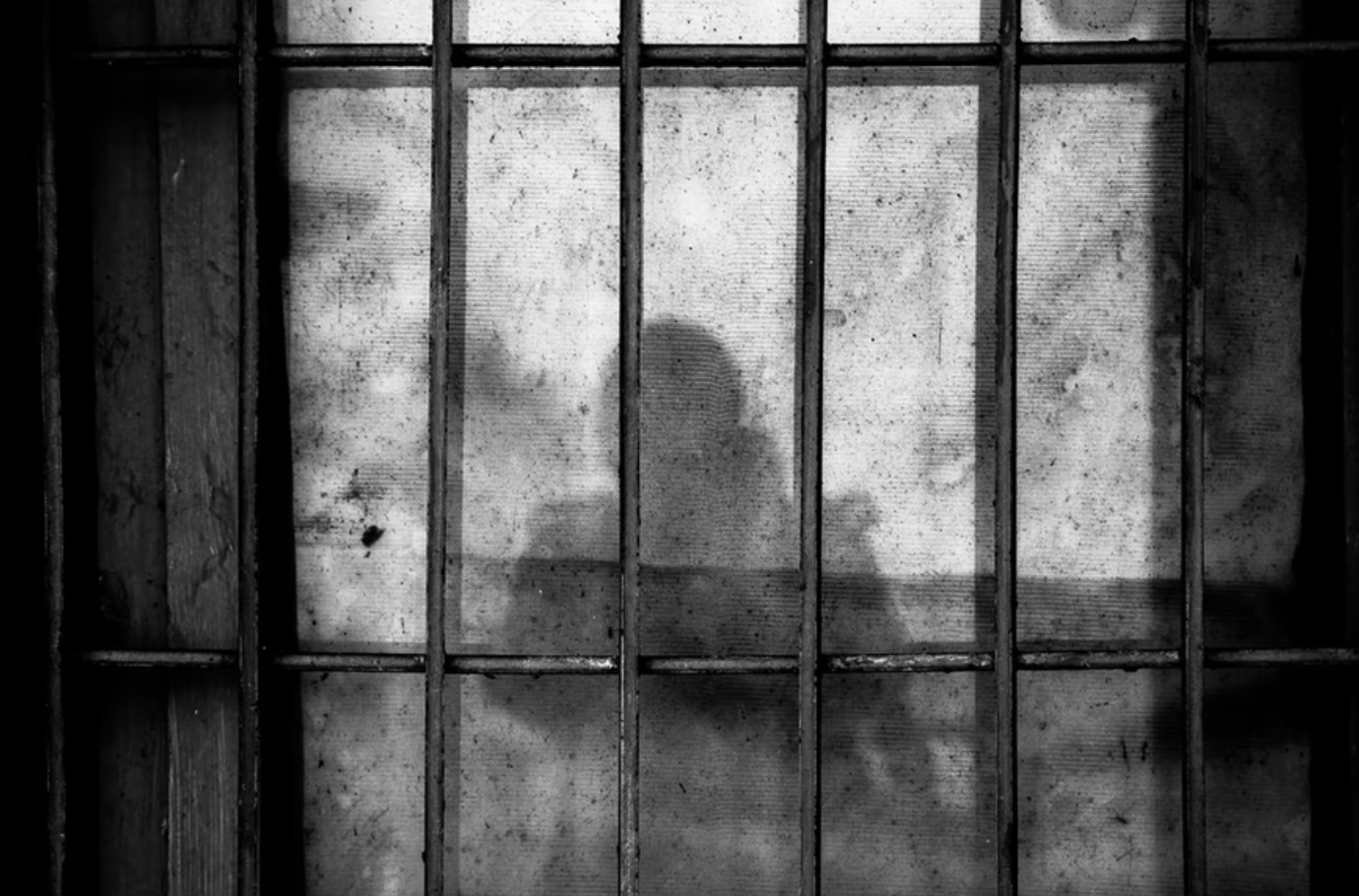Psychiatric care for those who need it is beneficial to both at-risk individuals and society as a whole.
In many ways, the modern criminal justice system in the U.S. is immeasurably flawed and anything but “just,” especially for the most vulnerable inmates. Out of the 10.35 million people incarcerated throughout the world, 2.2 million are incarcerated in the United States. As it stands, the current American prison pipeline serves as a harsh road of punishment for countless mentally ill individuals who committed crimes, many at a young age or at the onset of their symptoms. Prosecutors and law enforcement typically overlook crucial demographic factors, like an individual’s living environment or mental health, when determining sentence length.
What’s more, once a convicted criminal is incarcerated in the U.S., their chances of receiving mental health care plummet even further. As of 2022, some facilities have begun to implement psychiatric care in the name of prison reform and in an effort to represent those who struggle, but there’s still a long way to go.
While there are prevalent gaps in mental health care among prisoners across the world, this article will primarily focus on the U.S. prison system. This is due to the sheer complexity of the issue as well as the large number of incarcerated individuals with mental health disorders.
Individuals with mental health disorders make up a percentage of the U.S. prison population which is disproportionate to the healthcare provided. According to the Prison Policy Initiative, a nonprofit prison reform advocacy group based in Massachusetts, 43% of inmates in state prisons have been diagnosed with at least one mental health disorder. Among those mentally ill prisoners in state-run institutions, 74% reportedly receive no mental health care while incarcerated.
The issue is even worse in federal prisons. It’s important for advocates of justice reform to understand the differences between incarceration facilities in the U.S. Depending on the nature of a crime and where it was committed, a convicted criminal may be detained in a local, state, or federally run facility. Federal facilities are commonly referred to as “prisons,” and many are privately owned, adding yet another layer of complexity to the discussion. As such, policies regarding inmate well-being and mental health vary considerably among facilities.
This article will explore how current methods of psychiatric care are being applied to help inmates. We’ll look at every side of the issue, from the benefits of quality prison mental health care and ethical standards to the inherent drawbacks of the justice system itself.
Psychiatric Care in the U.S. and Around the World
Mental health disorders and incarceration have long been intertwined, with trailblazers such as Dorothea Dix advocating for improved mental health care for U.S. prisoners as early as the mid-1800s. During the early days of mental health care reform, however, we understood very little about the root causes of mental disorders and effective treatment methods. Those deemed “problem” inmates or who were declared mentally unstable were treated with heavy doses of medication.
There was a heyday of drug therapy in the 1950s, the era when the psychotropic drug Thorazine was introduced. During the same time period, many of the nation’s psychiatric hospitals began shutting their doors, leaving mentally ill patients to fend for themselves. Without psychiatric hospitals, countless mentally ill individuals have been effectively rerouted into the criminal justice system instead, and they’re often heavily medicated.
Touted as an effective means of incapacitating an unruly patient without the need for physical restraint, Thorazine had numerous side effects and was even used on patients with no history of violence. Primarily used in the treatment of schizophrenia, Thorazine can cause severe cardiac arrhythmias, among other side effects, and was discontinued in 2005 — although generic versions exist in the present day.
Schizophrenia is classified as a serious mental illness (SMI) by modern psychiatrists, alongside bipolar disorder, major depression, and schizoaffective disorder. These conditions typically do not get better on their own, and patients may require lifelong treatment in order to effectively manage an SMI. Unfortunately, the tradition of over-medicating so-called “problem” inmates persists in the modern criminal justice system, wherein medication is utilized in place of actual psychiatric care.
Demographics and Justice: The Interconnection
Interestingly, the efficacy of psychiatric care among mental patients has been called into question in recent years, leading to a widespread call for alternative treatment methods across the industry. For example, Alex Clarke, M.D., and Ira D. Glick, M.D., looked at the purported benefits of integrative behavioral health care in a 2019 study, but their research was confined to health care among the general population rather than incarcerated individuals.
“Inpatient psychiatric hospital services as they currently exist have little to no evidence base, and research has not clearly shown that hospitalization is more effective than alternative treatment methods,” write Clark and Glick. The medical professionals further claim that we’re in the midst of a “crisis” when it comes to psychiatric care in American institutions, from hospitals to prisons, long-term care facilities, and beyond.
Unfortunately, an inmate’s optimal care needs are usually overlooked by law enforcement when seeking a conviction. If we hope to see any real change in terms of improving mental health care within the justice system, caretakers and legal advocates alike must consider demographic factors such as race, culture, and sex in the treatment of high-risk patients. Preventative mental health care is also crucial. Rather than criminalizing and isolating those with mental illness, perhaps it’s time to better understand individual needs when looking for solutions.
Providing Individualized Care to High-risk Populations
Just as traditional medical care isn’t one-size-fits-all, neither is mental health, and effective treatment methods can vary significantly among individuals. Some people respond well to talk therapy, for instance, while other mental health patients find benefit from medication, group therapy, or a multi-tiered approach. Further, female and male patients may have different care requirements — especially in high-risk populations that happen to also be incarcerated.
Along with providing mental health care to at-risk patients, psychiatrists and similar professionals should work to get to know their patients, tailoring treatment to individual needs. Female inmates who are pregnant may benefit from reproduction-specific psychiatric care, for instance, as giving birth while incarcerated can be a daunting and stressful experience. Many women also experience heavy depression during the postpartum phase which can be dangerous if not addressed. All women should have access to reproductive psychiatrists, even if they’re behind bars.
However, reproductive care is just the beginning when it comes to the unique needs of female prisoners. According to research, as many as 80% of incarcerated women meet the criteria of a mental health disorder, with post-traumatic stress disorder (PTSD) and depression among the most prevalent. Experiences of childhood trauma and abuse are widely reported among female offenders as well, and adverse childhood experiences can be linked to behavioral problems that may persist into adulthood.
It’s also important for high-risk individuals from all demographics to continue psychiatric care upon release. The change from incarceration to freedom is jarring for many, and having a support system in place can make a big difference in facilitating a well-adjusted, healthy lifestyle.
Psychiatric Care, Life Skills, and Reducing Recidivism

No matter the quality of care received, it’s important to remember that mental health care doesn’t end once a convicted criminal completes their sentence and is released back into the population. Incarceration has lasting psychological effects of its own, and many former inmates report feelings of increased anxiety, post-traumatic stress, and impaired decision-making long after being released. Further, the formerly incarcerated often struggle to find work and build a better life for themselves after release due to the heavy stigma associated with a jail or prison sentence.
By providing compassionate psychiatric care to those incarcerated, mental health care professionals are thus at the front lines of true reform. Along with helping individuals work through their trauma and negative thoughts, psychiatrists can also guide their patients toward a better life. Equipped with positive life skills, inmates can gain the ability to pursue goals, secure a job after release, and grow within a company. All of these skills help reduce recidivism rates. Recidivism is defined as the tendency of a convicted individual to commit another offense (or offenses) upon release.
Research indicates that recidivism rates are higher among former inmates with mental illness than those without, especially for those with an SMI such as bipolar disorder. The good news is that continued outpatient treatment has been shown to “reduce the likelihood of arrest among persons with severe mental illness,” according to a 2020 study published in The Journal of the American Academy of Psychiatry and the Law. Recidivism is costly from a societal standpoint and dangerous for those individuals who find themselves cycling through the justice system.
Key Takeaways
Although it’s not a reach to say that the U.S. criminal justice system is broken and in need of a serious facelift, there is hope on the horizon. Mental health advocacy for inmates has gained traction in recent years, and psychiatrists are on the front lines of change. To help improve the criminal justice system and reduce recidivism among the mentally ill, mental health professionals must advocate on behalf of their incarcerated patients who may be needlessly suffering.
Even better, providing proactive mental health care within high-risk populations could help troubled individuals from making a mistake that lands them behind bars in the first place. Psychiatric care for those who need it is beneficial to both at-risk individuals and society as a whole.


Join the conversation!